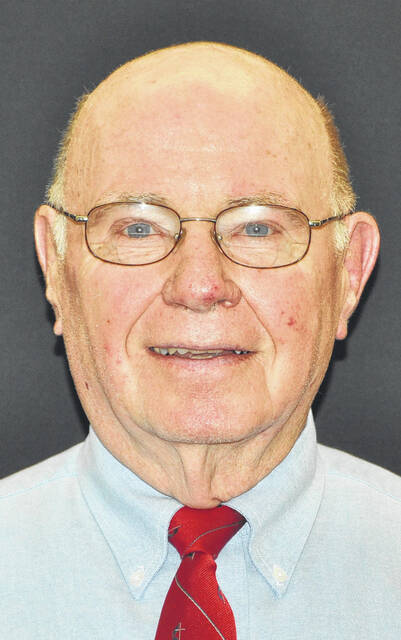
By William McCartney
Your Pastor Speaks
During my years as a professor at the Methodist Theological School, I had class sessions begin with prayer. Following tradition, each would bow his/her head during the prayer.
But one day a student challenged the idea – of bowing our heads. She had serious hearing loss and explained that she was helped considerably if heads were raised and she could see the person – essentially adding lip-reading to her efforts to catch every word.
Although that request caught me – and others – by surprise, we quickly understood and honored her request. If our reverential posture interfered with her understanding the prayer, all were more than willing to adjust their prayer customs in our class.
Frankly, it’s a bit difficult to “challenge” the idea of bowing in prayer. That’s so habitual in our Christian tradition – and other religions as well. For much of our Judeo-Christian tradition, bowing has been a sign of humility that we’re to show to God. Numbers 20:6 offers this record: “Then Moses and Aaron went away from the assembly to the entrance of the tent….they fell on their faces.” Bowing is understood universally as a sign of reverential respect!
On the other hand, Paul exhorted “men everywhere to pray, lifting up holy hands without anger or disputing.” And in John 17, when Jesus prayed for his disciples, it’s recorded: “After he had spoken these words, he looked up to heaven….” In other words, according to the Bible, there is more than one right posture for worship or prayer.
Perhaps it never was a matter of either/or. Both postures not only are acceptable, but in reality we need both – for the symbolism, and the emphasis each adds:
• The humility of bowing opens our spirits to receive the leading of God and Holy Spirit.
• The uplifted head opens our hearts to the majesty and eternal presence of God for us.
But what if there’s still a good reason, still another good reason to look down in our contemplation? Remember, Jesus asked us to pray – for God’s kingdom to come to earth! Remember, much of Jesus’ ministry was focused on earthly matters. That emphasis provided a finale for Jesus’ ascension soon after Easter. When a cloud took Him out of sight, the disciples remained transfixed. Then they were challenged: “Men of Galilee, why do you stand looking upward to heaven?”
That was a reasonable question – then and now! The task before Jesus’ followers was not to look up to see where he had gone, and then grieve about it. Their task was to look down, and all around — and remember what Jesus had asked them to do. Their responsibility was not to worry about the heavenly destination, but the earthy needs all around them.
At two key points in his ministry, Jesus made abundantly clear his priorities for us as followers.
In his home synagogue, he gave his first sermon. “The Spirit of the Lord is upon me, because he has anointed me to bring good news to the poor. He has sent me to proclaim release to the captives and recovery of sight to the blind, to let the oppressed go free, to proclaim the year of the Lord’s favor.”
Later, when John wanted to pass the mantle of his ministry to Jesus, he had his men ask Jesus if he was the Messiah. Jesus’ answer: “Go and tell John what you hear and see: the blind receive their sight, the lame walk, the lepers cleansed, the deaf, the dead are raised, and the poor have good news preached to them.”
Perhaps that’s what an observer had in mind when he said of anyone disproportionately focused on eternity, the land beyond the sky. “He’s so heavenly minded that he’s no earthly good.”
Rev. William McCartney is a retired United Methodist minister and a professor emeritus of the Methodist Theological School in Ohio.

